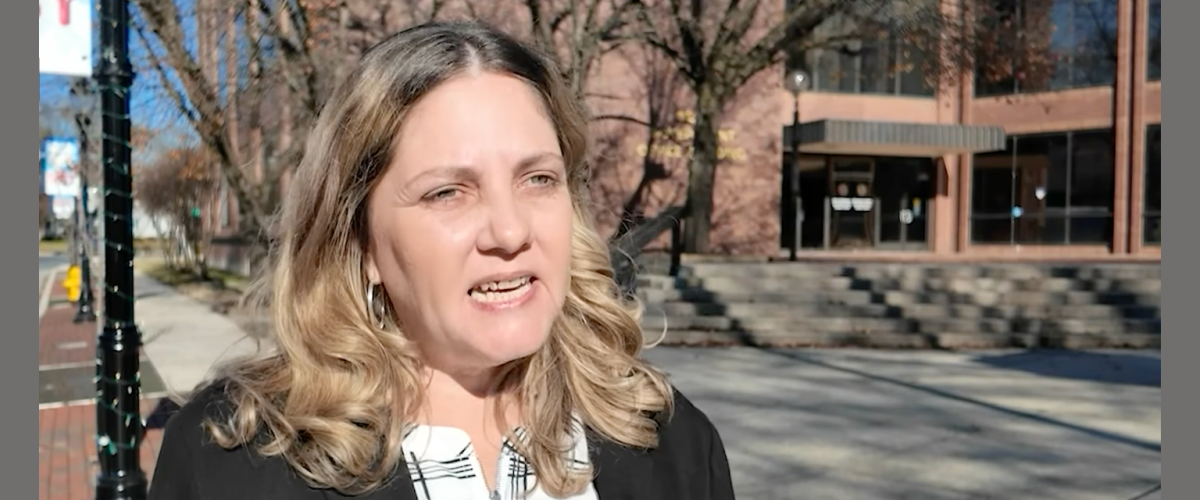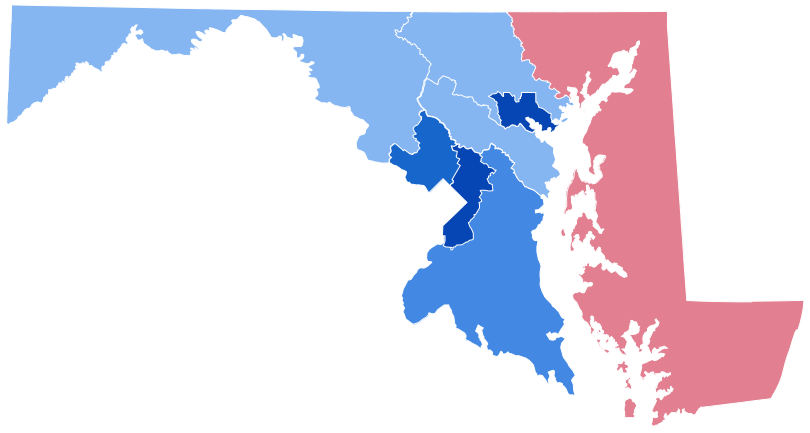Opinion: The Case for Angela Alsobrooks

Angela Alsobrooks, county executive of Prince George’s County, is the Democratic candidate for United States Senator from Maryland. In one of the most important races on the ballot this November, Alsobrooks is taking on Larry Hogan, the Republican former governor. The outcome of this contest could well decide which party holds the majority in the Senate for the next two years — if not longer.
Born and raised in Maryland, Alsobrooks graduated from Duke University and the University of Maryland School of Law. After serving as an assistant state’s attorney in PG County, she became the first woman elected as state’s attorney in that county.
During her tenure, violent crime in the county dropped by 50%, and she increased prosecutions for property crimes such as car break-ins, vandalism, and burglary. At the same time, she supported rehabilitation for juveniles and worked to reduce problems in the county school system.
She was elected county executive in 2018, the first Black woman to hold that office in any Maryland county. She put the focus on creating jobs and economic opportunities for county residents. A strong advocate of education, she broke ground for 10 new schools during her first six years in office. She also expanded healthcare access and made crucial decisions to keep county residents safe during the early years of the covid-19 pandemic.
In short, Alsobrooks brings a strong record of accomplishment to her campaign for Senate. But she’s not going to rest on those achievements when she takes her seat in Washington. Here are some of her priorities, as highlighted on her website.
On abortion and women’s health: Alsobrooks will co-sponsor the Women’s Health Protection Act on her first day in office, to establish federal protection for the right to abortion care. She will fight efforts by Republicans to defund Planned Parenthood and oppose any federal court nominee who doesn’t support abortion rights. According to Alsobrooks, women’s healthcare decisions should be between the women and their doctors, with government interference uncalled for.
On climate change — the effects of which are so recently evident in Hurricanes Helene and Milton — Alsobrooks supports the current administration’s work to invest in clean energy and reduce greenhouse gas emissions. As a senator, she says will work for federal emissions targets and expanded tax credits for clean energy. And she also plans to co-sponsor Democratic Sen. Chris Van Hollen’s Polluters Pay Climate Fund Act, to ensure that the largest contributors of fossil fuel emissions pay their fair share to reduce climate change.
On the economy: Alsobrooks advocates passage of a permanent child tax credit to help families address the rising costs of childcare. She supports the Bipartisan Infrastructure Law, investing to build new roads and bridges, improve access to drinking water, expand high-speed internet, and strengthen supply chains.
On gun safety: Alsobrooks is committed to fighting for essential gun safety legislation to protect children and communities from school shootings, mass shootings, and other gun violence. Measures she supports include universal background checks, banning AR-15s and similar military-style weapons, prohibiting devices like bump stocks, and passing red flag laws to prevent dangerous persons from obtaining firearms.
On immigration: She advocates comprehensive reforms to mend the immigration system, with a pathway to citizenship for those already living and working in the U.S. She supports initiatives aimed at safeguarding the rights of immigrants brought to the U.S. as minors, and those under Temporary Protected Status.
On senior issues: Alsobrooks opposes any effort to defund or privatize Social Security and Medicare, or to raise the retirement age. She supports expanding Medicare’s ability to negotiate drug prices, and advocates the elimination of the payroll cap for Social Security, ensuring that the wealthiest Americans do their share to support the program and keep it solvent.
On voting rights and preserving democracy: Alsobrooks supports the John Lewis Voting Rights Act, preventing states from undermining the right of all citizens to vote. She will sponsor the Freedom to Vote Act, expanding voting rights, reforming campaign finance law, and bringing an end to gerrymandering. She supports stronger ethics laws for all federal officeholders. And she will work to end the use of the filibuster in the Senate, preventing partisan minorities from blocking essential legislation.
Alsobrooks has been endorsed by an impressive list of state and national figures, including President Barack Obama and Maryland Governor Wes Moore, as well as Vice President — and Democratic nominee for president — Kamala Harris. Harris and Alsobrooks have a long history. It was Harris’s success as a district attorney in California that inspired Alsobrooks’ entry into politics here in Maryland, and Alsobrooks adopted several of Harris’s initiatives to fight crime during her own tenure as state’s attorney.
Alsobrooks has also won the support of the Washington Post editorial board.
Alsobrooks’ opponent, Hogan, has claimed that he will be an independent Republican if elected to the Senate, but realistically, as a first-year senator, he would have little power to change the minds — or votes — of the MAGA Republicans if they are in the majority. In fact, he would be under great pressure to go along with them on any close votes. And while he has claimed to favor reproductive freedom for women, his vetoes during his gubernatorial term of abortion legislation and his refusal to approve funding to train abortion providers speak louder than his words. Also, the fact that he has received significant funding from out-of-state Republicans suggests that they see him as a reliable representative of their priorities.
Angela Alsobrooks’ career to date has been consistent in its focus on helping ordinary Marylanders, whether in fighting crime, building schools, or working to create jobs. If elected to the United States Senate, she hopes to have the opportunity to continue this sterling track record on a national level.
It would be a shame to deny her that opportunity.
Peter Heck is a Chestertown-based writer and editor, who spent 10 years at the Kent County News and three more with the Chestertown Spy. He is the author of 10 novels and co-author of four plays, a book reviewer for Asimov’s and Kirkus Reviews, and an incorrigible guitarist.
Common Sense for the Eastern Shore







